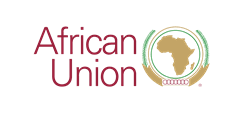On July 15, 2022, the Executive Council’s 41st Ordinary Session approved the African Common Position on Energy Access and Just Transition, a comprehensive strategy that maps Africa’s short, medium, and long-term energy development pathways in order to hasten universal energy access and the transition without compromising its development priorities.
The Common Position, which was developed by the African Union Commission (AUC) in coordination with other pan-African institutions, states that Africa will continue to use all of its numerous energy resources, both renewable and non-renewable, to meet energy demand. In order to improve access to modern energy in the short and medium term, natural gas, green and low-carbon hydrogen, and nuclear energy will be expected to be crucial, while also accelerating the long-term adoption of renewables for a low-carbon and climate-resilient trajectory.
The adoption of the Common Position is described as “a major step forward” by the African Union Commissioner for Infrastructure and Energy, H.E. Amani Abou-Zeid. “This is a crucial step forward toward ensuring and confirming Africa’s right to a different path toward the goal of universal access to energy, ensuring energy security for our continent and strengthening its resilience, while at the same time acting responsibly towards our planet by improving the energy mix,” said Dr. Abou-Zeid, highlighting that it is a timely measure to push for favorable outcomes and tangible investments in energy and infrastructure at COP 27 in Sharm El Shiekh, Egypt, scheduled for November 2022.
Compared to other regions, Africa currently has low energy access, with more than 600 million people living without access to electricity and 900 million lacking access to clean cooking facilities. The African Common Position supports striking a balance between ensuring that everyone has access to electricity to spur the continent’s urgently needed socioeconomic growth and a smooth transition to an energy system based on clean, renewable energy sources that meets Agenda 2063’s goals.
Commissioner Abou-Zeid said during a press conference held in conjunction with the 4th Mid-Year Coordination Meeting in Lusaka, Zambia, that the African Union placed great importance on the accomplishment of ambitious energy goals intended to develop resilient energy infrastructure on the continent. He urged stakeholders to support programs like the African Single Energy Market (AFSEM), the Continental Power System Masterplan (CMP), and the Program for Infrastructure Development (PIDA). “I enjoin stakeholders and potential public and private investors to accept and support Africa’s Common Position for Energy Access and Just Transition and support the various energy security initiatives needed to develop technical and financial instruments and packages to fast-track Africans’ right to universal access to affordable and reliable electricity,” says the African Union.
To expedite energy access and a just transition across the continent, the Common Position’s implementation is based on a number of pillars, including mobilizing adequate funding, accelerating regional integration to create large markets for energy development, harmonizing policies and regulatory frameworks, and encouraging technology transfer and capacity building

